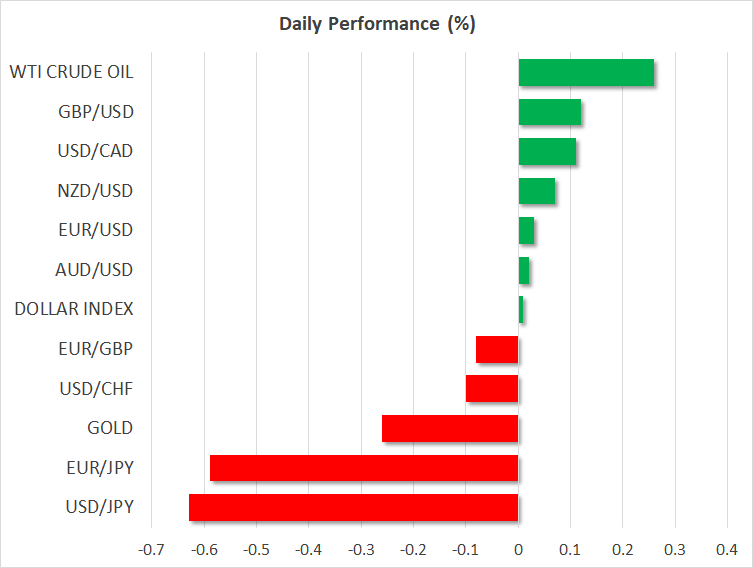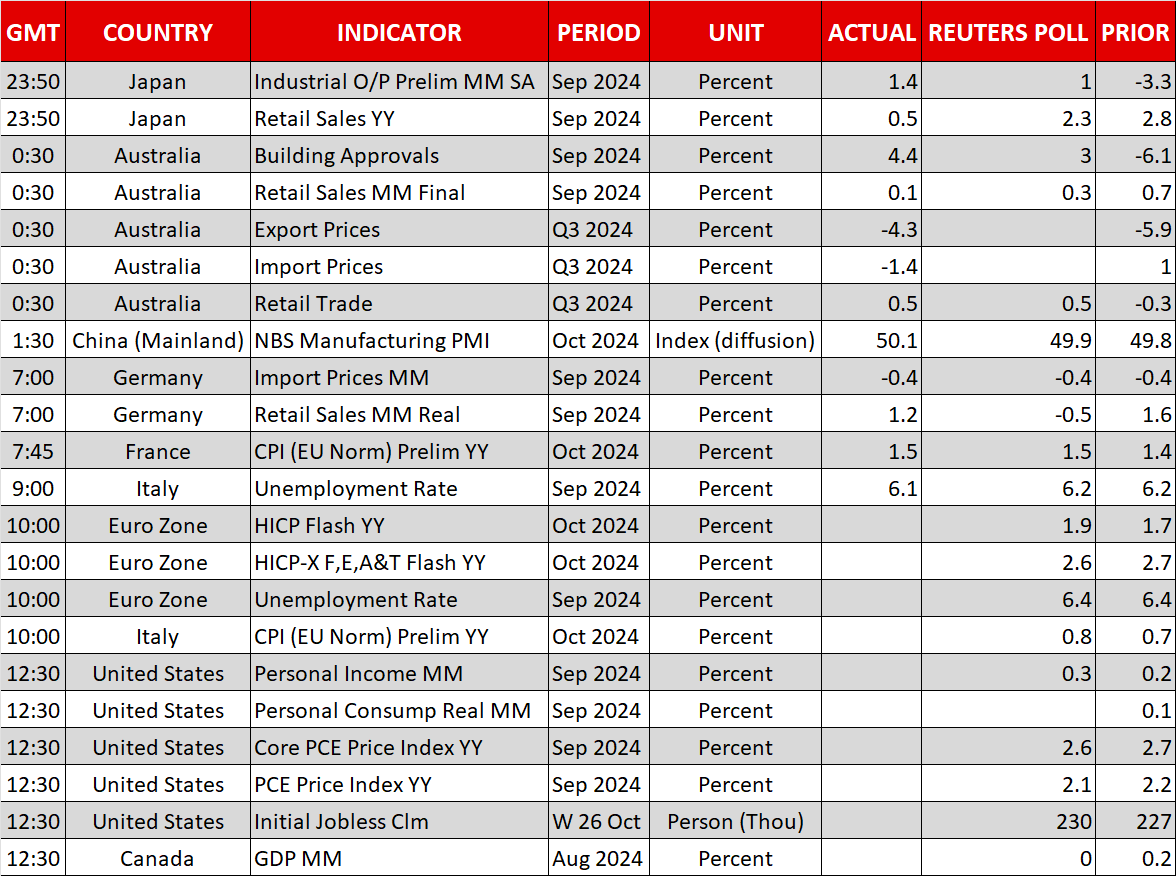- Yen up after Bank of Japan sounds more hawkish than expected
- Euro climbs on stronger German GDP and inflation
- Dollar choppy after mixed US data, focus turns to PCE inflation
- Stocks struggle on earnings outlook worries
Yen Gets Unexpected Boost
The Japanese yen firmed up on Thursday after the Bank of Japan struck a somewhat more hawkish-than-expected tone as it kept rates on hold but signaled it remains on track to raise rates further. Markets were anticipating a more cautious stance on rates following the recent easing in inflation, especially after the uncertainty created by the weekend’s general election.
With the ruling LDP party losing its parliamentary election and the possibility that Prime Minister Shigeru Ishiba’s days in office are numbered, the outlook has become a bit muddied, especially when adding the uncertainty surrounding the outcome of the US presidential election into the mix.
But even though Governor Ueda acknowledged these risks, he continued to flag higher rates over the coming months. In fact, rate hike signals appear to have strengthened from the meeting compared to the commentary leading up to today’s decision. The yen’s recent slide is another factor keeping the BoJ on a hiking path.
The US dollar rose to near three-month highs against the Japanese currency this week, surpassing 153 yen. But the BoJ’s hawkish rhetoric has put the brakes on the rally and the dollar has fallen to around 152.40 yen.
Euro Rebounds on Rare Data Beats
The euro has also regained the front foot against the dollar after preliminary GDP and CPI figures out of Germany topped expectations on Wednesday. The German economy returned to growth in Q3, and Eurozone GDP growth was double the expected figure.
Today's flash CPI estimates maintained the streak of upside surprises as headline inflation edged up more than forecast in October, hitting 2.0%.
The data has dashed hopes that the ECB would cut rates by 50 basis points in December, lifting the euro from 16-week lows.
Pound Seesaws on Tax and Spend Budget
The pound is another currency that is attempting to exit its bearish phase against the greenback, but the UK budget has blurred the Bank of England’s rate path amid a combination of massive tax hikes and spending increases.
The Labor government’s first budget since winning the general election turned out to be more inflationary than anticipated and this is worrying investors. In the short term at least, spending will rise faster than taxes and this could make it more difficult for the BoE to cut rates aggressively.
After a bumpy session yesterday, the pound is back below $1.30 today even as the 10-year gilt yield surges to a one-year high.
PCE Inflation Up Next for the Dollar
As for the US dollar, the boost from yesterday’s beat in ADP employment proved short-lived as investors took comfort in the slight miss in Q3 GDP growth and as attention switches to today’s PCE inflation readings. All eyes will be on whether the core PCE price index will resume its decline in September. Core inflation has been somewhat sticky lately for both the CPI and PCE measures, so progress is essential if the Fed is to continue cutting rates.
However, tomorrow’s jobs report will be just as if not more crucial for the Fed ahead of its policy decision next week.
Tech Earnings Sour
In equities, the optimism on Wall Street didn’t last long amid renewed concerns about AI spending. Both Microsoft (NASDAQ:MSFT) and Meta Platforms (NASDAQ:META). announced better-than-expected earnings, but investors were spooked by the former’s guidance of slower cloud revenue growth and the latter’s plans to spend even more on AI.
Today’s spotlight falls on Apple (NASDAQ:AAPL) and Amazon (NASDAQ:AMZN). US futures are currently in the red, pointing to further losses after yesterday’s dip.
